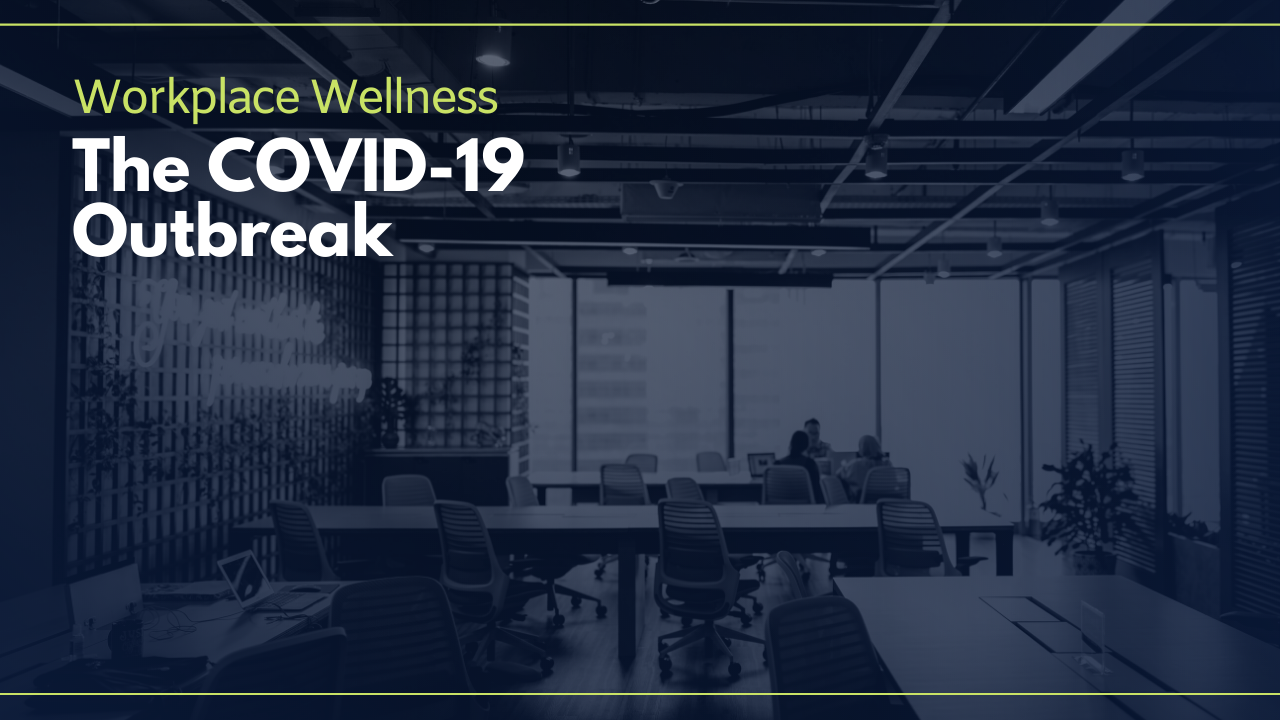- The COVID-19 pandemic has greatly impacted all aspects of daily life, including work.
- Our individual actions can go a long way in reducing transmission and limiting the spread of the coronavirus.
- For workplaces that remain open, here are some important steps companies and individuals should take to reduce the risk of exposure.
Last Wednesday, March 11th, the World Health Organization (WHO) officially declared the coronavirus outbreak as a pandemic.
COVID-19 is a respiratory disease caused by the SARS-CoV-2 virus that spread from China to over 114 countries. By Sunday morning (March 15th), there were over 150,000 confirmed coronavirus cases around the world.
The pandemic has greatly impacted all aspects of daily life: work, travel, tourism, financial markets, food supplies, social activities, public transportation, and much more.
Countries have responded differently to the outbreak; some have declared nationwide lockdowns, with only grocery stores, gas stations, and pharmacies open, while others have responded by suspending classes, banning travel, and prohibiting mass gatherings.
COVID-19 and Its Impact on Work
While some companies are prepared to deal with such outbreaks, most are not. Even though remote work has become increasingly normal over the past couple of years, the reality remains that many professionals go into the office to work.
Outbreaks such as the one from coronavirus can have negative, lasting impacts on work. Below are some of the most common ways extensive outbreaks can impact work.
- Absenteeism. Workers are more likely to be absent from work in situations such as the one we are living today. They could be sick themselves, they could have a compromised immune system, they could be taking care of loved ones that have fallen ill, they could be taking care of children whose classes have been cancelled, or they are simply scared of possible exposure.
- Presenteeism. Even if workers show up to work, their productivity levels might be severely affected. It’s normal for people to worry in situations like these and their minds may not be focused on the task at hand. For instance, many workers might be more worried about their financial and job stability; many may be worried that they cannot go visit loved ones, and many might just feel anxious about the situation.
- Increased stress levels. With so much uncertainty around every day aspects of life, stress levels are likely to increase, which can not only cause tension in the workplace, but also affect a person’s performance at work. The mental health of workers might be severely affected, so it’s important to check in on employees and provide necessary support.
What Companies Can Do
While some companies may be able to keep their business running remotely, others can not. Below are some steps that companies can take to reduce the risk of staff exposure to COVID-19 and limit the rate of transmission within their workplace walls.
- Promote frequent handwashing. Experts have stated that frequent handwashing can go a long way in slowing down transmission rates. Companies should remind all staff, visitors, and customers to regularly wash their hands. Some ways this can be done is through loudspeaker announcements, online notifications, and posters or signs throughout the office.
- Provide easy access to hand sanitizer. In cases where soap and running water are not readily available to all, providing alcohol-based hand sanitizer is an effective strategy. This should be available to all staff, as well as customers, clients, and visitors.
- Encourage respiratory etiquette. Organizations should share posters and infographics on proper respiratory etiquette, like covering coughs and sneezes.
- Encourage sick workers to stay at home. Even if it’s a minor allergy or a cold, encouraging those who feel sick to stay at home will not only reduce the risk of infection but also help reduce stress levels and give others peace of mind. In times like these, even a minor cough or sneeze from allergies can create tension and drive anxiousness. Important note: waive the need for a healthcare provider’s note for staff members who are sick; they might not be able to get it quickly as healthcare providers are extremely busy and it might require them to leave their home and put others at risk.
- Prioritize cleaning and disinfecting. Organizations should increase the regularity with which they clean and disinfect the workplace. It’s important that companies use approved products that have been shown to kill viruses and bacteria. Particular notice should be taken to common areas, as the coronavirus can be spread through contact with infected surfaces. Key areas that should be cleaned and disinfected are:
- Desks
- Armrests
- Tables
- Chairs
- Computer monitors
- Keyboards
- Staples
- Printers
- Kitchen area (countertops, coffee pot and handle, refrigerator, dishwasher, microwave, toaster, etc.)
- Door knobs
- Lockers and storage units
- Discourage workers from using others’ equipment. Since the virus can survive for extended periods of time on different surfaces, the more people who avoid using others’ equipment, the better. This includes phones, desks, computers, tablets, laptops, desks, etc.
- Practice social distancing within the workplace. Standing 3-5 feet apart (1-2 meters) can be effective in reducing transmission rates. In the workplace this can be done by increasing the distance between workstations, adding distance markers so that people know how far away from each other they should stand. This can be particularly useful in customer-facing workplaces or in workplaces where queuing in line is common. Also, encourage people to leave more space between each other in elevators and common areas.
- Establish flexible work policies. If your staff cannot do their work from home, consider implementing flexible schedule policies so that not everyone is in the office at the same time.
- Provide workers with access to cleaning products. Make sure that employees have access to cleaning products so that they can clean and disinfect their work surfaces as they see fit.
What Workers Can Do
In times like these, our individual actions can go a long way in reducing transmission and exposure. Below are some things workers can do in the workplace to help contain and mitigate the outbreak.
- If you feel sick, stay at home.
- Wash your hands regularly and consider keeping hand sanitizer near you at all times.
- Clean your work area a few times throughout the day.
- Cover yourself properly when you cough or sneeze.
- Be patient with others; these are stressful times for everyone.
- Avoid touching your eyes, nose, and mouth; ideally your face overall.
- Avoid close contact with coworkers and friends (including hugging, cheek kissing, shaking hands, touching shoulders, etc.)
- Avoid sharing food and drinks with others.
- Clean after yourself (and we mean beyond throwing away garbage; consider wiping down surfaces after you’re done with them, similar to what people do with equipment in the gym).
- Stay hydrated.



 Dr. Gleb Tsipursky – The Office Whisperer
Dr. Gleb Tsipursky – The Office Whisperer Nirit Cohen – WorkFutures
Nirit Cohen – WorkFutures Angela Howard – Culture Expert
Angela Howard – Culture Expert Drew Jones – Design & Innovation
Drew Jones – Design & Innovation Jonathan Price – CRE & Flex Expert
Jonathan Price – CRE & Flex Expert












